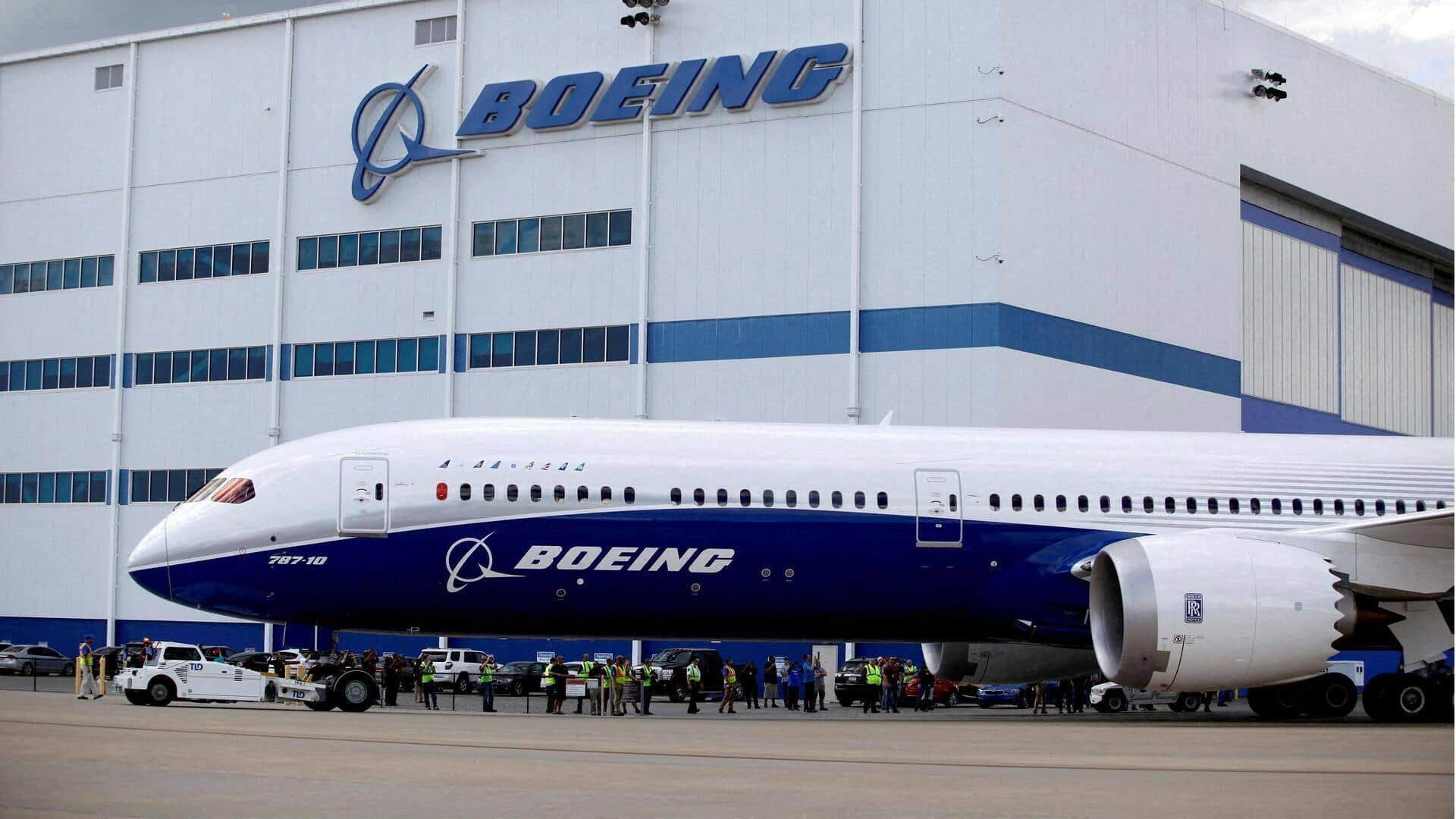
China returns Boeing jets made costlier by tariff war
What's the story
A Boeing 737 MAX, originally destined for China's Xiamen Airlines, has returned to the US production base in Seattle. The jet landed at Boeing Field on Sunday at 6:11pm local time.
Reuters also reported a second 737 MAX, meant for another Chinese airline, was seen returning to the US.
This reversal of deliveries follows the escalating trade tensions between the US and China, with President Trump's tariffs playing a direct role in making the aircraft too costly for Chinese airlines.
Tariff consequences
Impact of tariffs on aircraft delivery
Boeing's top-selling model, the 737 MAX, had been at Boeing's Zhoushan completion center in China for final touches and delivery.
It made refueling stops in Guam and Hawaii during its return journey of over 8,000km. The aircraft was still adorned with Xiamen Airlines's livery upon its return to the US.
The second jet, a 737 MAX 8, landed in the US territory of Guam earlier today, after leaving Boeing's Zhoushan completion center near Shanghai.
Tariff escalation
China's retaliatory tariffs and their implications
In retaliation to Trump's decision to raise baseline tariffs on Chinese imports to 145%, China imposed a retaliatory tariff of 125% on US goods.
The move has major implications for Chinese airlines, as the market value of a new 737 MAX is around $55 million, according to aviation consultancy IBA.
Consequently, the delivery of such aircraft could be heavily impacted by these tariffs.
Government intervention
China's support for airlines facing higher costs
In wake of the increased costs due to tariffs, China is reportedly looking into ways to support airlines leasing Boeing jets.
Last week, it was reported that the Chinese government had asked domestic airlines to stop buying aircraft-related equipment and parts from US companies like Boeing.
The decision comes as China makes up for about 20% of projected global demand for aircraft over the next two decades.
Delivery doubts
Uncertainty surrounds future aircraft deliveries
As of late March, Boeing's order book had 130 planes scheduled for delivery to Chinese companies, including commercial airlines and leasing firms.
However, it remains unclear who made the decision for the aircraft to return to the US.
Both Boeing and Xiamen Airlines have not commented on this matter.
The uncertainty surrounding changing tariffs could potentially leave many aircraft deliveries in limbo.